
One of my favorite moments in “My Broken Language”—written and directed by Quiara Alegría Hudes, at Signature Theatre’s Pershing Square Signature Center—comes when the femme performers of the play’s chorus walk in willowy patterns around the stage, each holding a book by a venerated writer. They lay the books on the ground and space them out precisely, forming a path. That image alone is enough to set forth the electric, often moving idea behind the play: that the arts we attend to—literary, religious, choreographic, conversational—are what, in the end, make us who we are and set us on our way. These books and their words are the substance of an unsettled soul, and have paved its road outward, into the world.
While the books are paraded, the performers call out the names of their authors: Allen Ginsberg, William Shakespeare, and Esmeralda Santiago are mentioned. (I glimpsed one of my own long-loved books, Santiago’s “When I Was Puerto Rican,” just before it got placed on the ground.) “Where would I be without ‘The House on Mango Street’?” somebody asks, referencing Sandra Cisneros’s classic coming-of-age novel.
In Cisneros’s recent poem “Tea Dance, Provincetown, 1982,” published in this magazine, she describes growing up— her constant subject—on the raucous, energetic dance floors of that summer resort town:
We were all on the run in ’82. Jumping to Laura Branigan’s “Gloria,” the summer’s theme song. Beat thumping in our blood. Drinks sweeter than bodies convulsing on the floor.
この記事は The New Yorker の November 21, 2022 版に掲載されています。
7 日間の Magzter GOLD 無料トライアルを開始して、何千もの厳選されたプレミアム ストーリー、9,000 以上の雑誌や新聞にアクセスしてください。
すでに購読者です ? サインイン
この記事は The New Yorker の November 21, 2022 版に掲載されています。
7 日間の Magzter GOLD 無料トライアルを開始して、何千もの厳選されたプレミアム ストーリー、9,000 以上の雑誌や新聞にアクセスしてください。
すでに購読者です? サインイン
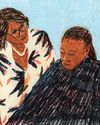
MEAN TIME
“Hard Truths.”
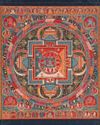
ENLIGHTEN ME
The secret beauty of mandalas.
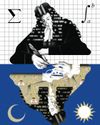
THE BEST OF THEM
His was a genius for the ages. Will Gottfried Leibniz ever get his due?

DEATH CULT
Yukio Mishima’ tortured obsessions were his making—and his unmaking.
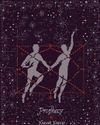
Prophecy
The night of Dev’s twenty-second birthday, he was invited to sit with the elders after dinner.

A TALE OF TWO DISTRICTS
Lauren Boebert and Colorado’s red-blue divide.
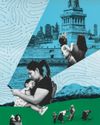
THE TIKTOK TRAIL
Andean migrants draw others to the U.S. with videos depicting themselves as living the American Dream.

LOVE AND THEFT
Did a best-selling romantasy novelist steal another writer's story?

OUR NEW TWO-FACTOR AUTHENTICATION SYSTEM
Our two-factor authentication system is expanding because text messages and e-mailed codes are becoming less secure. Also, we’re committed to making sure your log-in process is more of a hassle than it needs to be.

STILL PROCESSING
Why is the American diet so deadly?